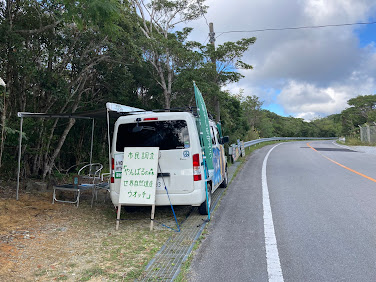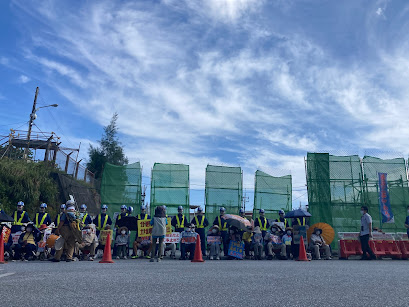Okinawa Civil Society Members Participated in NGO-UNESCO Forum
On February 14, 15, 22, and 23, the Berlin-based NGO World Heritage Watch held the 12th International Forum on World Heritage (UNESCO-NGO Forum). Dr. Masami Mel Kawamura, Director of the Informed Public Project, and I, Hideki Yoshikawa, Director of the Okinawa Environmental Justice Project, participated in the UNESCO-NGO Forum.
On Feb. 15, I presented “Hesitant Heritage: Yambaru Forest and U.S. Military’s Northern Training Area.” I argued that the Japanese Ministry of the Environment and the U.S. Military have been highly “hesitant” to discuss issues relating to the Northern Training Area. I requested the UNESCO World Heritage Centre and IUCN to help resolve this situation. My presentation is a result of collaboration between Akino Miyaga (entomology), Shin-ichi Hanawa (ecology), Masami Mel Kawamura (international sociology), Hideki Yoshikawa (anthropology), and local community members and supporters of the Yambaru forest.
 |
| Yambaru Forest World Natural Heritage Watch Project |
The NGO-UNESCO Forum is a critical opportunity for civil society members to offer their on-the-ground information on their concerned World Heritage sites to the UNESCO World Heritage Centre, the International Union for Conservation of Nature (IUCN), the International Council on Monuments and Sites (ICOMOS), and the International Centre for the Study of the Preservation and Restoration of Cultural Property (ICCROM).
The Forum is critical because it allows both UNESCO and its advisory bodies and civil society members to openly discuss the issues and exchange ideas and suggestions. It also allows the participating civil society members to compare their endeavors with those of others, put their work in perspective, and help broaden their networks,
The Forum is, however, conducted “closed” for some participants might face repercussions because of their information. In contrast, those in Okinawa are still better positioned than many other participants to discuss our issues. Okinawa’s civil society must recognize its favorable position and openly discuss the problems of the Yambaru forest. By doing so, Okinawa’s civil society can help create a World Heritage community where open dialogue on World Heritage can be conducted without fearing repercussions. Thus, we put our presentation material below.


